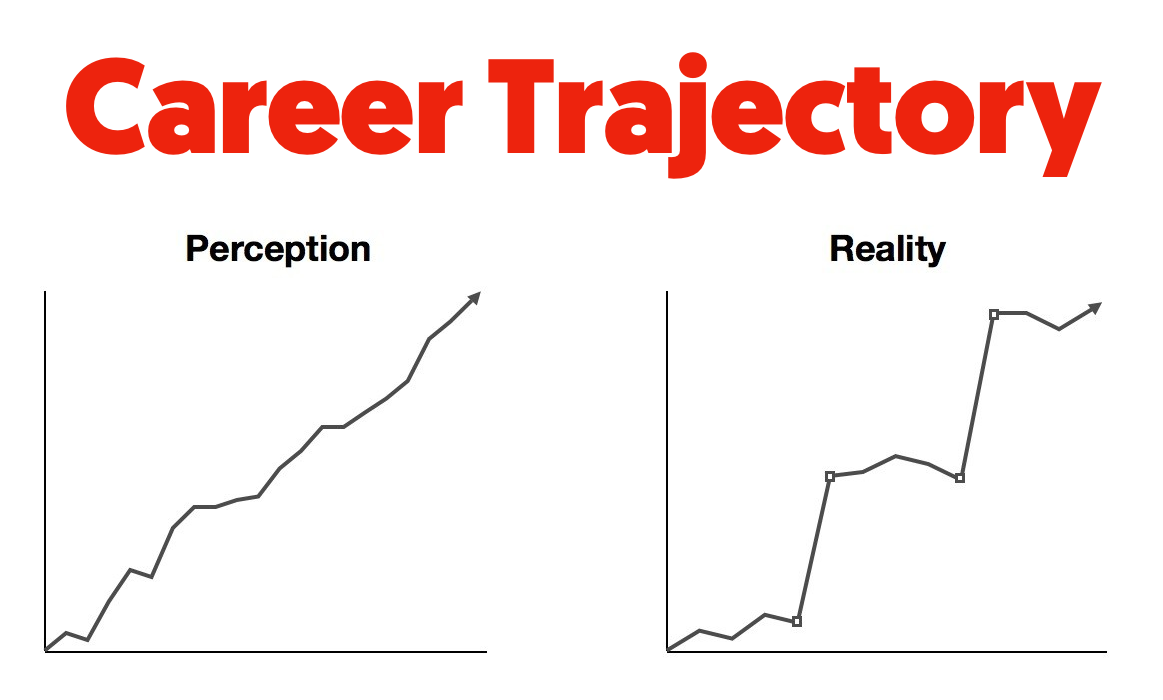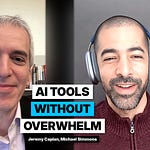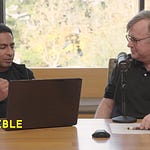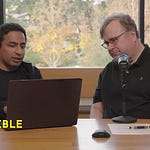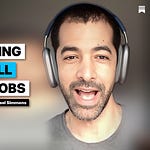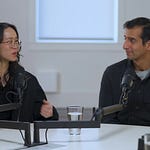Watch Full Video: Bill Gross, Founder of Idealab, speaking at TED 2015
Bill Gross is the most successful investor and entrepreneur you’ve never heard of.
Over the past 30 years, his idea incubator has birthed 150 companies. Of those, 45 (30%) have gone from idea to IPO. That’s like hitting the lottery again and again. This track recorded is unparalleled. As a comparison, YCombinator, the most well-known incubator, has 18% of the companies it has funded rise to a valuation of $100M+.
In 2015, Gross endeavored to understand why some of his companies succeeded while others failed. Using a rigorous process, he narrowed down the key success factors to the following five:
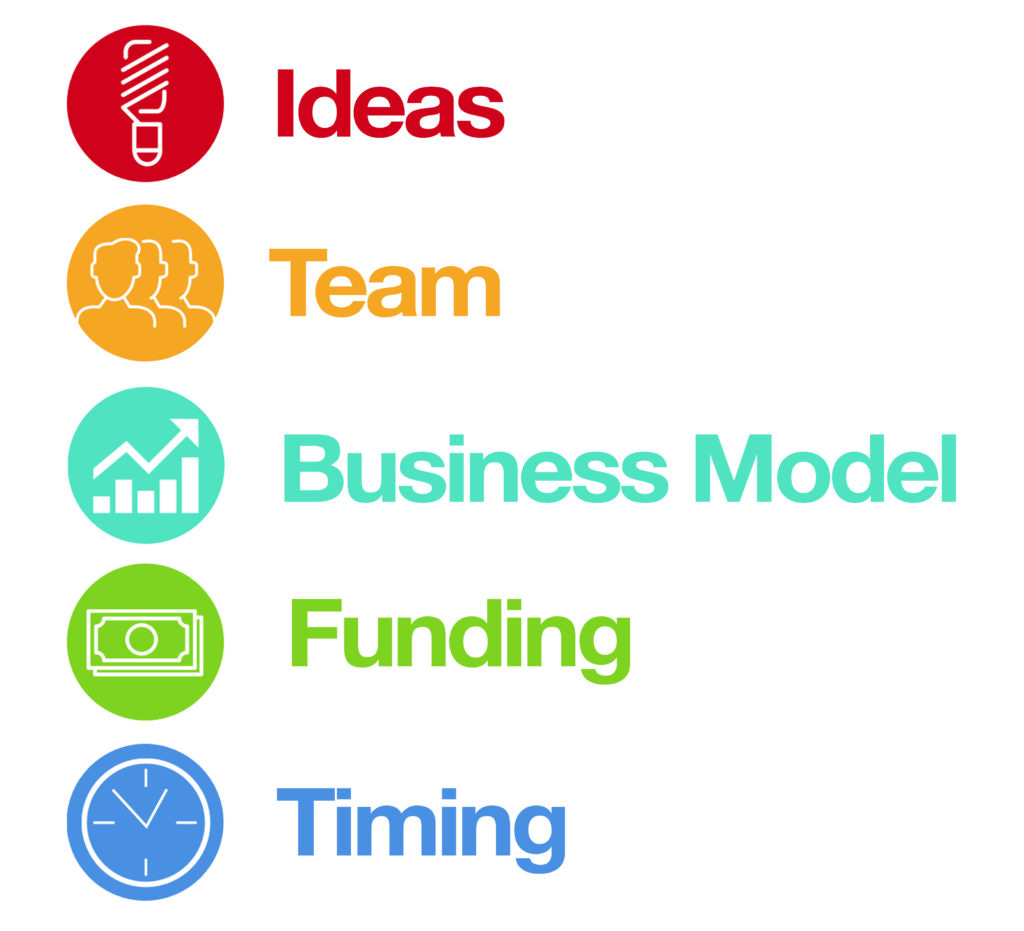
Even he was shocked by the study results. Timing was way more important than he had anticipated…

This finding is made even more interesting when you consider that within all of the books and courses on entrepreneurship and career planning, the topic of timing is virtually non-existent.While there are a million books on career planning and business ideation, there is literally zero books on career timing and startup timing.
It’s peculiar.
As a result of this huge hole, most people have few mental models to help them reason about when to adopt technologies as a consumer, creator, or thought leader. Therefore, their decisions are not optimal. Most people unconsciously default to blind early adoption or stubborn resistance.
Bottom line:
Timing is the hidden dimension of success.
It’s the most important decision that people ignore.
It trumps talent, ideas, and hard work .
There is untold power to being in the right place at the right time.
And, it turns out that Bill Gross is not alone among legendary investors and entrepreneurs…
Marc Andreessen and Reid Hoffman Agree: Timing is Everything in Tech (And Your Career)
Legendary investor and the creator of Netscape (the first internet browser) Marc Andreessen makes the case that almost all of the tech startup ideas that fail are actually good ideas that have bad timing...
Source: a16z
Said differently, what’s hard to predict about opportunities is not WHAT the best opportunities are, but rather WHEN they are…
In Breakout Opportunities Are What Accelerates Your Career, another Silicon Valley investing legend and LinkedIn founder Reid Hoffman helps us understand the stakes of getting the timing right for big opportunities.
According to Hoffman, getting the timing right on just one breakthrough opportunity can change the trajectory your entire entire career.
Here’s how…
Most people look at their career as a steady progression upward. But, in reality, one breakthrough opportunity can make your career. Therefore, when the timing is right, it’s important to go all in…
Here’s exactly how Hoffman frames the importance of timing breakthrough opportunities:
In a start-up, growth usually isn’t slow and steady. Instead, unusually consequential opportunities—certain breakthroughs, deals, discoveries—rocket the company forward and accelerate the rate of growth.
[…]Careers, like start-ups, are also punctuated with breakouts. On a typical résumé—and even on a LinkedIn profile—there’s a reverse chronological listing of jobs held, all presented in the same type size and font. But on its face this is misleading. Our professional lives are not a sequence of equally important jobs. There are always breakout projects, connections, specific experiences, and yes, strokes of luck—that lead to unusually rapid career growth.
You can never be certain. Golden opportunities are not wrapped in pretty packaging with a clear label; killer job opportunities are rarely advertised on job boards… Breakout opportunities are competitive -- many people want them -- so you have act quickly or you miss it…
You can develop habits of behavior and habits of thinking that increase the likelihood that you find yourself in the right place at the right time. You can, in other words, deliberately increase the quality and quantity of career opportunities—even if you don’t know what and where they are just yet.
—Reid Hoffman, Founder, LinkedIn
Bottom line:
Timing is important to our overall success and impact.
Yet, it’s rarely talked about.
Getting it right once on a major decision could make your career.
How and when you adopt AI could be that decision.
Now is a particularly good time to sharpen our reasoning on how timing works.
These bullets aren’t just true for startups and careers. They’re also important in the world of ideas…
“Nothing else in the world…not all the armies…is so powerful as an idea whose time has come.” – Victor Hugo
When it comes to the experts we trust, there are three phases we go through:
Exploration
Selection
Sticking
When we find an expert we trust on a topic, we tend to do two things:
We subscribe to them, and give them our ongoing attention and trust.
We stop exploring other experts to follow.
This pattern makes it hard for aspiring thought leaders to breakthrough in fields where people already have their trusted experts.
On the other hand, during times of change in people’s lives and in the world, they become extremely open to finding new experts.
For example, think about big changes in your life:
Going to college
Having kids
Moving to a new location
Learning a new subject
Signing up for a new social network
Notice how for each of these, you went through a period of exploraton where you were open to meeting everyone and trying everything. Then, notice how you started to guard your time once you found your favorites.
For example, I recently moved to New Hampshire from New Jersey. At first, I was desperately looking for vendors (electrician, pest control, landscaping, plumbing, handyman, roofing, etc.), restaurants, things to do, and how to get places. But, now it’s a year later, and I barely explore, because I have my favorites.
Over time, I’ve seen how certain thought leaders succeeded because they were the first to create courses and content on a new technology when it reached the inflection point of becoming useful. I have been particularly inspired by:
Nat Eliason who was the first to create a course and explainer on Roam.
Dan Shipper and Ethan Mollick being early on how to use conversational AI.
My friend, Cal Newport, who was one of the first people to defiantly pushback against social media and point out its side effects.
My mentor, Eben Pagan, who created the first online dating course in 2003 and built a company to 75 employees.
My own personal experiences. For example, because of my timing, I was able to build a 300,000-person Facebook Group when Facebook prioritized groups, build 50,000 followers on LinkedIn by adopting newsletters early on, and write for Medium.com when it sent millions of views of free organic traffic. For a long time, I thought my success was based purely on quality, but over time, I’ve seen how each of these opportunities was a result of combining quality with an opportunity window.
Bottom line: Getting the timing right for your ideas can be the difference between success and failure. And, it’s important for thought leaders on several levels…
Picking the right tools to use (eg, note-taking)
Picking the right platforms (eg., social media, creator platforms)
Picking the right ideas to talk about
Given that AI is the most important technology and trend in human history, it’s worth understanding it now and exploring the timing of thought leadership opportunities around it in your area of expertise. This article is timely, because we are at the inflection point at which AI is just beginning to really transform the world.
Here’s the first step you can take
Seek To First To Understand, Then To Strategize, Then To Act
When I talk to people about AI, they often want practical tactics first.
In my opinion, this is putting the cart before the horse.
Tactics should come from strategy and strategy should be based on understanding:
Understanding → Strategy → Tactics
Many people seem to evaluate AI by using a tactics-first approach. They use ChatGPT once or twice to do something, don’t quite the results they expected, and then assume it’s overhyped. This is a mistake. Without the understanding AI, it’s hard to contextualize the results of our tactics and to get great results.
Therefore, it’s much better to start with understanding.
To this end, if you’re interested in exploring how to reason about timing AI better, then I recommend the following four articles I have written on the topic:
#1: Top AI Experts Predict Artificial General Intelligence In 3-5 Years. Now What?
In this article, I collect the predictions of many of the top researchers in the AI field on when AGI will happen. Everyone has different definitions of AGI, but the general usage of the term is to denote the milestone when AI is better at the best humans at every single cognitive task. Amazingly, most experts in the field think this moment is 3-5 years away. This is astounding when you think about it.
#2: Elon Musk: "AI will probably be smarter than any single human next year."
Rather than just trusting the experts, I wanted to understand the mental models they were using to come up with their predictions. In this post, I go deep into the weeds so that you can have your own model of AI timelines to make predictions from. This model will help you contextualize article headlines and the constant hype around AI.
#3: Steve Jobs' Hockey Stick Rule Helps Predict The "Inevitable" Future Of AI
In this article, I introduce a mental model used by top tech entrepreneurs and futurists (e.g., Steve Jobs, Kevin Kelly, Jeff Bezos, Elon Musk, Sam Altman, and Ray Kurzweil), but that is not widely known. I find the model particularly game-changing for structuring how I think about the future of AI.
#4: Ben Franklin, Thomas Edison, & Other Pioneers Teach A Critical Futurism Mental Model
This article builds on hundreds of hours of research I did in 2021-2022 on the history of industrialization, technology, and productivity. While I published several successful articles as a result (i.e., In 1911, A Genius Revealed A Forgotten Science Of How To Be 50x More Productive Without Working More Hours), a centerpiece of the research remained unpublished.
I didn’t think anything of it until I noticed that the research was deeply informing how I made sense of AI. So, in this article, I share what I learned and apply it to AI in order to help your sense-making. I don’t present conclusions. Rather, I present a transformative mental model that will help you form your own.



